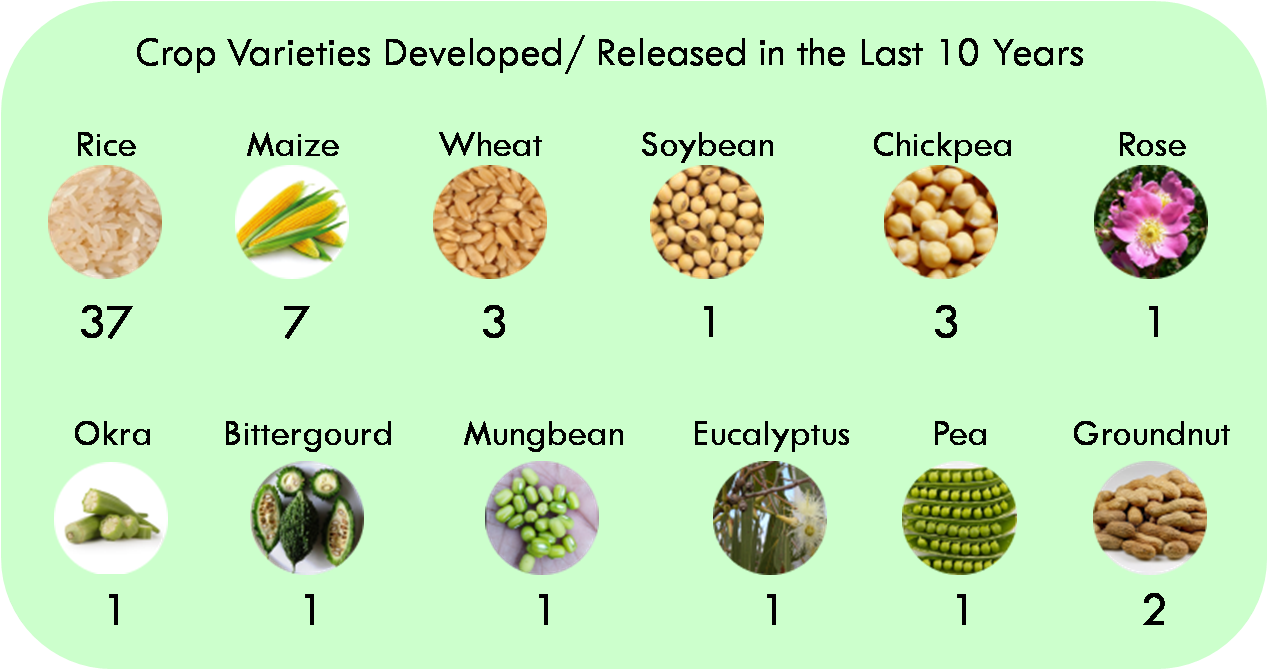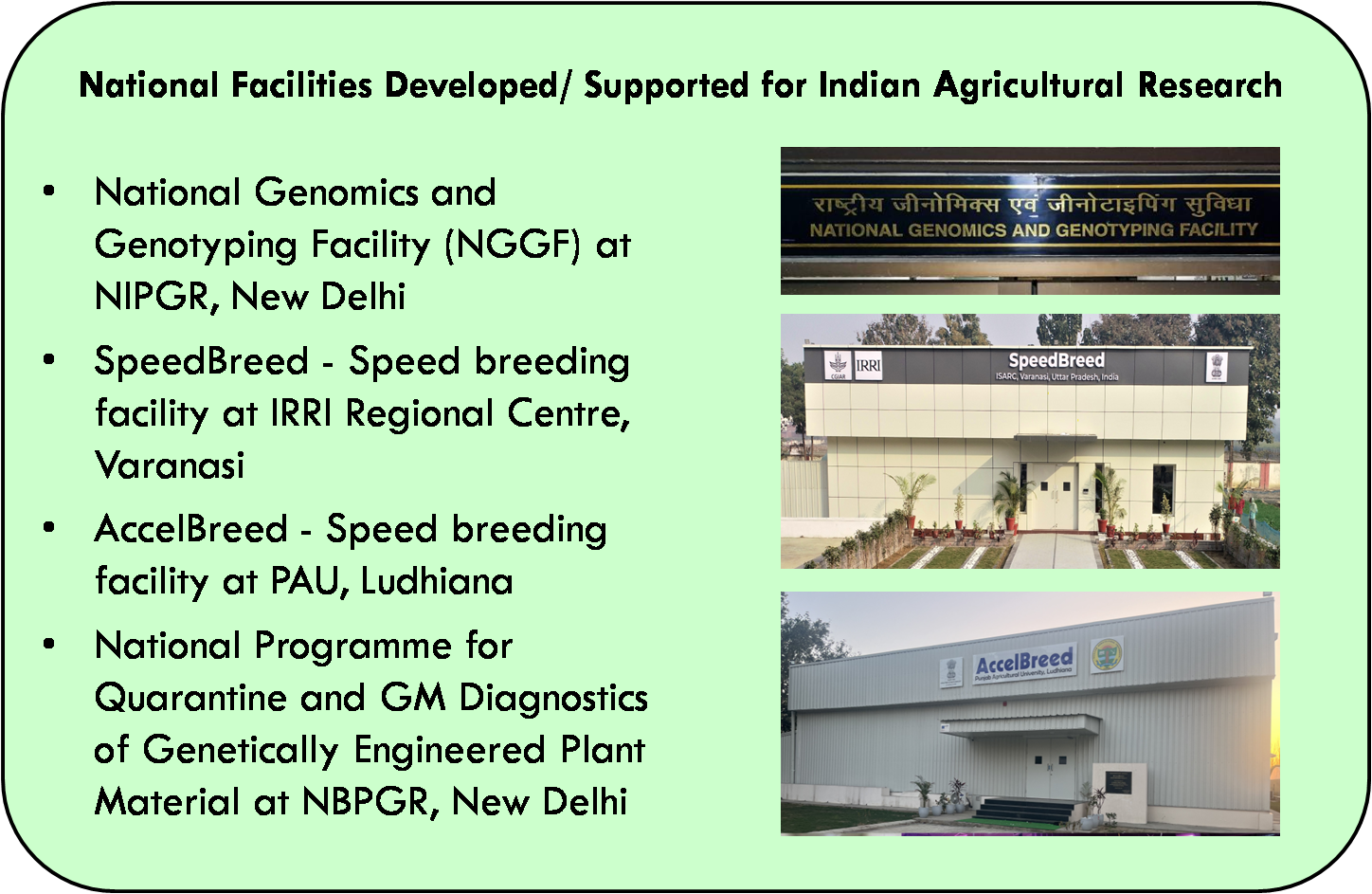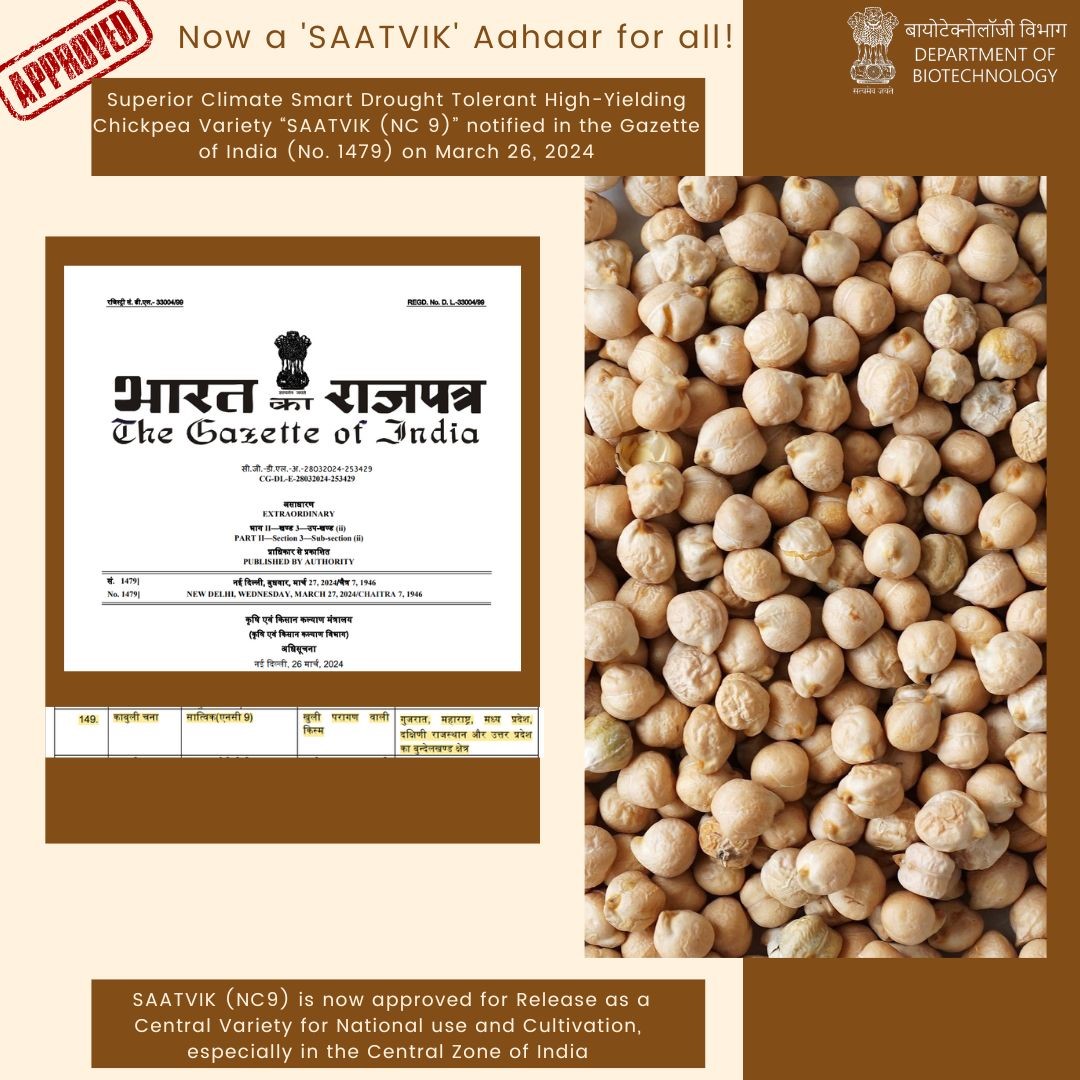The DBT Agriculture Biotechnology programme supports innovative biotechnological research for achieving sustainable agriculture, by leveraging the latest advances in genomics, proteomics, transgenics, and gene editing technologies. The targeted outcomes are enhancement of food security, rural employment, and environmental sustainability.
Major Activities
The Agriculture Biotechnology programme supports R&D for knowledge generation, technology and product development for productivity gains, enhanced nutrition and ensuring quality, resistance to drought salinity, high temperature, resistance to pests and diseases, input use efficiency, climate resilience and biosafety. This programme deals with a wide range of economically important crops including rice, wheat, cotton, millets, oilseeds and pulses.
This programme has also supported the establishment of multiple speed breeding facilities, which work by accelerating crop generation cycles to achieve five to eight generations of crops annually. This is expected to expedite breeding programs by achieving substantial genetic advancements swiftly for several crops, including cereals, pulses, and even fruits such as citrus.
The DBT has been supporting the National Programme for Quarantine and GM Diagnostics of Genetically Engineered Plant Material at NBPGR, New Delhi. This facility plays a key role in supporting the activities of the Review Committee on Genetic Manipulation (RCGM).
Some Recent Achievements
- DBT has supported the development of the Amaranth Genomic Resource Database, an integrated database resource of Amaranth genes and genomics. Near Infrared Spectroscopy (NIRS) techniques have been developed for rapid screening of oil, protein, fatty acids, and essential amino acids in amaranth grain. Further, a genome-wide 64K SNP chip for Grain Amaranth has been developed and a patent applied for the same. Differently processed amaranth grains (roasted, boiled and unprocessed grains) could counteract high fat diet induced obesity through modulation of the gut bacteria and decreasing the adiposity indices
- Safflower wilt caused by Fusarium oxysporum, is a major concern in safflower growing areas. A DBT supported study has discovered a new pathogen, Fusarium proliferatum, causing safflower wilt in the fields of Karnataka and Maharashtra.
- Little seed canary grass (Phalaris minor Retz.) is a pernicious weed of wheat crop causing enormous yield losses. Lead molecules have been discovered for development of weedicides against P. minor. A patent has been applied for an efficient process of preparation of morpholino-1,3,5-triazine derivatives with a potential for herbicidal activity.
- A time-resolved fluorescence-detected multi-dimensional electronic spectroscopy (fMES) spectrometer with a visible white light continuum, and a rapid scan white light MES spectrometer suitable for micro-spectroscopy applications providing throughput and sensitivity better than the state-of-the-art, have been developed and demonstrated for elucidating initial steps of cyanobacterial photosynthesis
Targeted Social Impact
Agriculture today is dependent on a relatively small number of popular high yielding varieties of crops, which are constantly threatened by the emergence of new pathogens, pests, and other biotic/abiotic stresses due to climate change. India has managed to retain a valuable pool of genetic variability in the form of germplasm collections, which also hold wild and historical plant lines with valuable traits which can be used for developing new varieties resistant to the upcoming threats, ensuring continued food security. The DBT is focused on adding value to these germplasm banks through genomic/ phenotypic characterization of the accessions and making available the data electronically to promote and facilitate research and development using these resources. This programme supports multiple R&D projects focusing on unique challenges in diverse areas of agriculture, including basic research on plant diseases, pests, weeds, and nutrient use optimization, which can lead to the development of new and environmentally friendly fertilizers, pesticides and weedicides.
Contacts Concerned Officer for more Information
| Directorate Head | Dr. Nitin Kumar Jain, Scientist G |
|---|---|
| nitink[dot]jain[at]nic[dot]in | |
| Phone No. | 011-24365972 |
| Programme Officer | Phone No. | |
|---|---|---|
| Dr. Sneh Lata Singh, Scientist D | snehlata[dot]singh[at]dbt[dot]nic[dot]in | 011-24360295 |



















